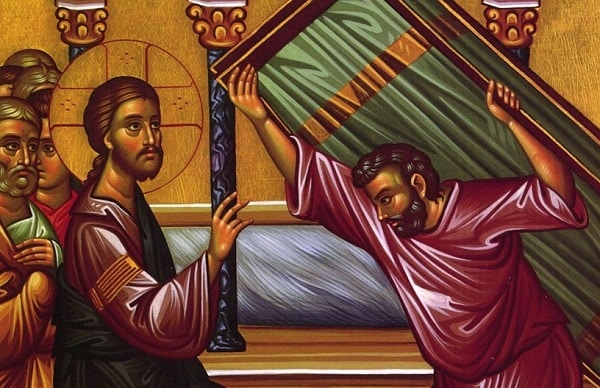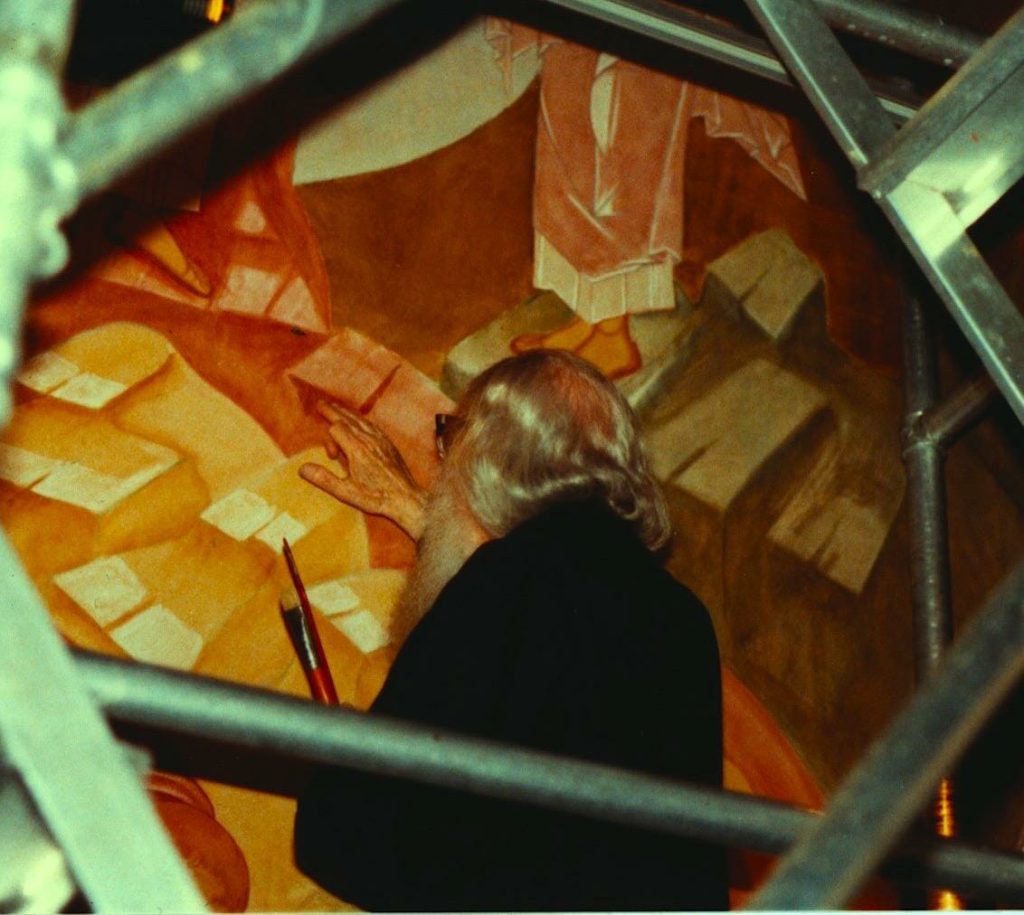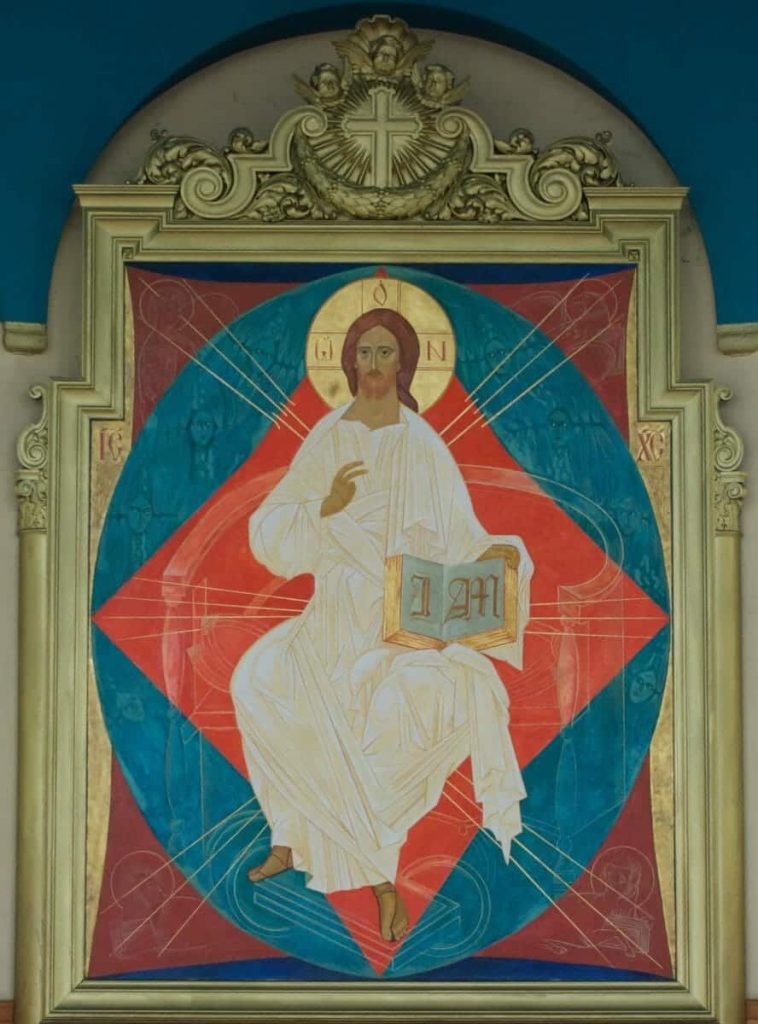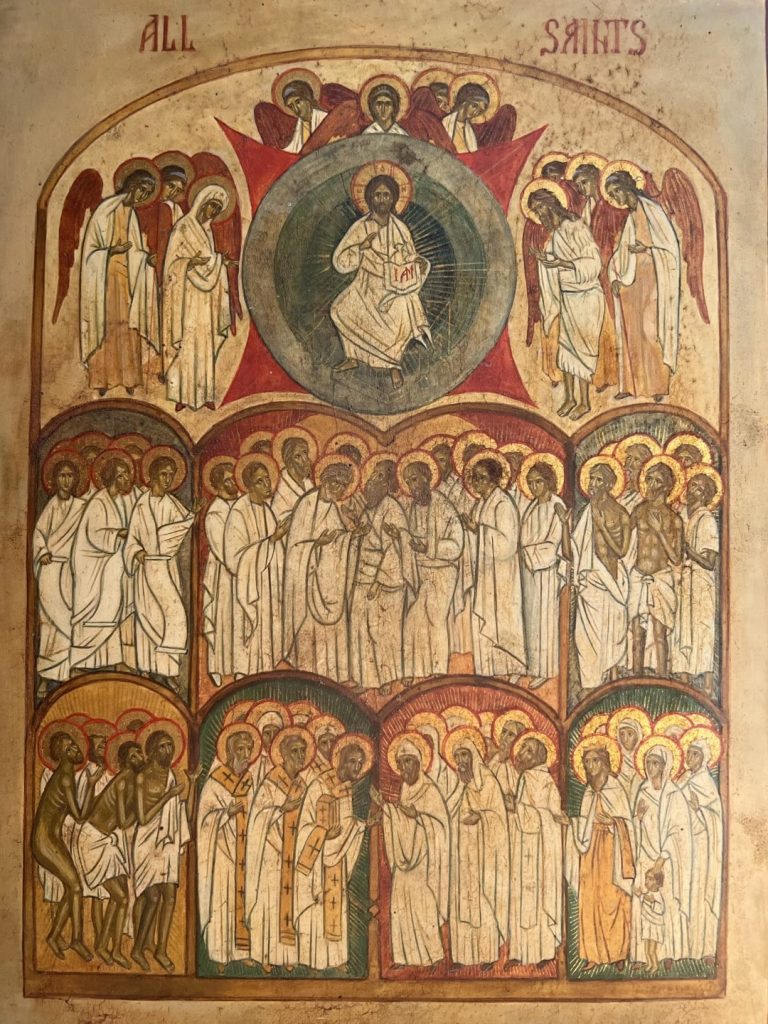Sunday of the Paralytic

Today’s miracle of the healing of the paralytic is the third of seven signs referred to by the Evangelist John. During the miracle and its aftermath, Christ’s words, as set forth by Saint John, reveal awesome truths about His Person and His relationship with God the Father.1John 5:1-20.
The healing of the paralytic took place at the Sheep Gate. The pool there, a fount of water, was called ‘Bethsaida’ in Hebrew, which means ‘House of Mercy’. Jerusalem is a strange place, the target of the loving care of God and the place where His power is made manifest. In this ‘House of Mercy’ on the day of the feast, the Lord Who delighteth in mercy appeared, perhaps in secret, without His disciples. Instead of the created Angel that disturbed the water, the ‘Messenger of great counsel’2See Isa. 9:6. came, the wellspring of mercy, revealing God’s truth.
Among the company of the sick, ‘a certain man was there, which had an infirmity thirty and eight years’. The omniscient Lord countenanced the man who had patiently contended with disability for thirty-eight years: ‘When Jesus saw him lie, and knew that he had been now a long time in that case, he saith unto him, Wilt thou be made whole?’ The paralytic abode in a place where all the infirm were awaiting a miracle. Still, the Lord asks him a strange question, ‘Wilt thou be made whole?’ He asks this to reveal the content of his heart, and to stir up in him the will, the predisposition, the desire to be healed.
‘With God all things are possible’.3See Luke 18:27. However, He does not do anything without man’s cooperation, because He will not impose anything, even salvation, without his consent. Therefore, from the least important event to the most wondrous, everything happens through the cooperation of two factors: the divine, infinitely great, and the human, infinitely small, but absolutely necessary.
The Lord bestows healing upon the one who desires it. In the same way he abundantly gives the waters of devotion, ‘springing up into everlasting life’4See John 4:14. as a drink to those who thirst for Him and with fervent longing seek the ‘fiery and bedewed’ flame of the Comforter. God desires to work His miracle within man, but the greatest miracle in all creation, the miracle of salvation, can only occur when man unites his will with that of his Creator and Father.
The paralytic did not make an embittered response to the Lord’s inquiry, but just set out his complaint in all simplicity: ‘Sir, I have no man, when the water is troubled, to put me into the pool: but while I am coming, another steppeth down before me.’ Christ then commanded him to do what appeared impossible: ‘Rise, take up thy bed, and walk.’ The grace and energy within these words informed the heart of the paralytic, who against all hope believed, ‘And immediately the man was made whole, and took up his bed, and walked’. His trusting response cooperated with the almighty creative will of God so he could be healed, and obeying his Benefactor he lifted up his mat of many years of tribulation in his hands and started to walk.
At this moment the scandal broke, for ‘on the same day was the Sabbath.’ Every time that the truth of God is revealed, it acts as a double-edged sword dividing men into two categories: those who receive it and by its light are saved and those who, hardening their hearts, reject it and drown in the abyss of darkness. The miracle was performed on the Sabbath, a day set aside by God as a time of rest for His chosen people. God Himself rested from the work of creation on the day of the Sabbath and blessed it, yet he never sought repose from His work of compassion, mercy and love for man. God desired man to honour the Sabbath day’s rest, so as to dedicate the day to divine thoughts, thanksgiving and worship. The Sabbath freed man from the vanity of everyday life, even if only temporarily, so he could lift up his heart to things above.
Although the Israelites were essentially nomads, they had holy men in their midst whose hearts were able to hear and recognise the voice of God, and even to converse with Him: ‘Behold Thy servant, Lord, and give utterance!’ By contrast, though contemporary man may speak many languages, he knows nothing of the Lord’s language, the language of humility and self accusation. He abides in exile from his heart and cannot pour it out before the God of knowledge like Prophetess Hannah. He no longer knows how to receive a word from God obediently, so that this word can become a means of salvation and life eternal. However, the Righteous and the Prophets, who could receive the visitation of the prophetic spirit and conceive and bring forth the word of God in their heart were exceptional also among the Jews. The Scribes and Pharisees, attached to the word of the law, set forth commentary and explanations over the ages that made the commandments seem onerous and even ludicrous. Thus the breaking of the high day of the Sabbath, which could include even the parade of a cockerel in a domestic garden, was punished with stoning.
The Jew’s reaction to the healing of the paralytic was lamentable, showing the way that the passions blind man. Instead of wondering at the awesome miracle and glorifying God, they protested that the healed paralytic had broken the rest of the Sabbath. However, he had an irrefutable excuse: the commandment had come from someone who spoke with authority.5Cf. Mark 1:22; Cf. Luke 4:32. Although he was simple, he could intuitively distinguish between the Lord’s word that imparted divine energy, and the words of the Pharisees that beat the air and failed to ask the essential question: ‘What man is that which made thee whole?’ but instead asked, ‘What man is that which said unto thee, Take up thy bed, and walk?’
The Lord knew that His hour had not yet come,6John 7:30 and 8:20. and ‘conveyed himself away, a multitude being in that place’. Later He found the healed paralytic in the temple and said to him: ‘Behold, thou art made whole: sin no more, lest a worse thing come unto thee.’ The tradition of the Jews held that the source of psychological and physical ill-health was sin, either personal or ancestral. In the present case, it is clear that the man was weighed down by his own past sins. When the Lord finds him again, He gives him the key to the preservation of grace, a challenge that perplexes every Christian. He says to him, ‘You received healing; try to live surrendered to the will of God from now on, crucified to the passions and the sin of the world. Keep hold of the grace within you and transform it into the grace of salvation.’
Every Christian endeavour aims to acquire the saving grace of God that bridges the chasm between this world and the eternal Kingdom. However, man does not always know how to respond to the gifts of God and dissipates all the grace he is given until he becomes a laughing stock of demons. The solution is found in the words of the Lord, ‘sin no more’, His words show that He Himself had been delivered over to the divine will, to redeem man by His precious Blood and suffer crucifixion for the sins of this world.
When man seeks a miracle from his heart, God will often accomplish it out of compassion. However, many times people seek the miraculous intervention of God in their life, without any understanding of the saying of Saint Paul, ‘It is a fearful thing to fall into the hands of the living God’.7Heb 10:31. If it is God’s good will to respond to an entreaty, man must offer up thanksgiving and yearn to be well-pleasing to his Benefactor, surrendering to Him completely, ‘lest a worse thing come’. Woe unto the man, who having received a miracle, does not transform his entire life out of repentance and gratitude.
The reading of the day ends with that verse, but in the following verse the ferment of the Jew’s hatred for Christ becomes clear: ‘And therefore did the Jews persecute Jesus, and sought to slay him’. However, Jesus answered them, ‘My Father worketh hitherto, and I work.’ Through His answer, the Lord reveals himself to be equal to the Heavenly Father. Just as the Father never ceases to work through His compassion, His love, His Providence, His mercy, so also the Son unceasingly pours out waves of love upon man, even on the day of the Sabbath, because, as He will declare later on, ‘My Father and I are one’.8John 10:30.
Thus the sign that was accomplished at the ‘House of Mercy’ made an opening for the light of the Son of God’s true authority to enter in. The fulness of this truth would only be given with the coming of the Comforter at Pentecost, when ‘the faith was delivered once and for all unto the saints’.9See Jude 1:3. However, already all man’s mind and longing is directed towards the great gift, which will engrave the beautiful form of the Lord Jesus in the heart, so that he may be able to hear His voice within him and receive the prompting of His counsels and His will. In this way, he continually strives that he might ‘sin no more’, and whenever He falls from His Light he prays, ‘Amen, Lord Jesus, Thou knowest that against Thee do I sin, but Thee only do I adore’.10See Vespers, Day of the Holy Spirit, Third prayer of kneeling. In essence, all that this transient life amounts to is the battle against sin and continual glorification of God ‘in Spirit and truth’, until worship in the Spirit, the true Life, swallows up all that is mortal and unites man eternally with His Saviour and Redeemer, the Almighty Jesus, to Whom belongs all glory, honour, worship and mighty love unto all ages.
Footnotes
- 1John 5:1-20.
- 2See Isa. 9:6.
- 3See Luke 18:27.
- 4See John 4:14.
- 5Cf. Mark 1:22; Cf. Luke 4:32.
- 6John 7:30 and 8:20.
- 7Heb 10:31.
- 8John 10:30.
- 9See Jude 1:3.
- 10See Vespers, Day of the Holy Spirit, Third prayer of kneeling.



